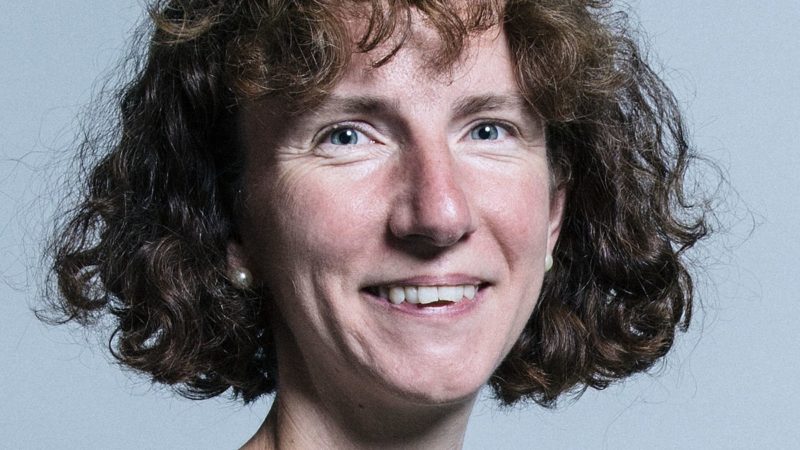Anneliese Dodds highlighted a £70m cut to disability benefits on International Day of Persons with Disabilities.

In what’s been derided as another broken manifesto pledge, Tories are accused of imposing a £70m “stealth cut” on people living with disabilities in Britain. The 2019 manifesto promised to double the minimum Personal Independence Payments (PIP), before claimants are reassessed for benefits, to 18 months.
However, Anneliese Dodds, shadow secretary of state for women and equalities, has revealed the small print in a Green Paper that seemingly tears up the manifesto pledge.
The long-promised Green Paper, titled ‘Shaping Future Support’, was published by the Department for Work and Pensions (DWP) in July.
The DWP states that the Green Paper: “Considers the options for addressing some of the short- to medium-term issues in health and disability benefits. It will also start a discussion about the opportunities for wider change to deliver on the objectives of the health and disability benefit system.”
Labour says that the proposals raised in the Green Paper, will alter the way in which some disability benefit claimants will receive funding, which will amount to cuts of £70m over the course of three years.
Sneaking “yet another cut” past disabled people
In a letter to the minister for disabled people, Chloe Smith, Dodds urges the government to “come clean” over the reform of the disability benefit system that will allegedly result in significant cuts.
Calling on the government to not to try to “sneak yet another cut past” disabled people, Dodds wrote: “With a vital consultation on these matters having closed just weeks before the Chancellor delivered his Budget, the government seems to [be] going behind the backs of disabled people and pushing on with its own preferred plans regardless.”
The calls were made just ahead of International Day of Persons with Disabilities on December 3. The International Day is aimed at promoting the rights and wellbeing of persons living with disabilities.
Living in a nightmare “each and every day”
Dodds’ letter coincided with a release of a new study from Ulster University (UU) into the impact the pandemic has had on people living with disabilities. It found that some families of people with learning disabilities are living in a “nightmare each and every day.”
The report found that during the first year of the Covid-19 pandemic, support services for people with learning disabilities “disappeared or were markedly reduced.” Such support has not returned to its pre-pandemic levels, says the study.
Disabled facilities closed
Corresponding with the study is news that a respite centre for disabled children in Londonderry is to close for up to three months. The centre, which provides short-term respite care for up to six children, is unable to deal with the “current challenges.”
The temporary closure of the Northern Ireland respite centre is not an isolated case. In September this year, councillors gave the go-ahead to shut down five care centres in Slough.
The closures are set to affect 107 users of the centre who are living with learning difficulties and/or autism. The measures, which has been described by parents in Slough as a ‘nightmare’ for many, will save the council approximately £1.1m by next year.
Slough Borough Council says it will provide “personalised services” to replace the care centres, something which some parents with children who rely on the facilities remain dubious of.
Waning aid is driving loneliness
Additional research centred on the impact of diminishing support for people with disabilities, shows that waning aid is driving loneliness. The research was carried out by HfT, a national charity that provides services for people with learning disabilities. The charity polled 1,000 people about after lockdown about their mental wellbeing. A third of respondents said they felt lonely nearly always or all of the time.
Victoria Hemmingway, policy and public affairs manager at HfT, said: “For many people with a learning disability, loneliness hasn’t been restricted to the pandemic; it is a chronic and long-term experience.”
Research like this, amid the censure over vital facilities for disabled persons being forced to close, highlights the critical role care plays in supporting people with disabilities.
It stands to reason that any cuts to disability benefits are only likely to exacerbate the problems people living with disabilities and their families face.
LFF reached out to the DWP for commentary on the letter to the minister for disabled people. A spokesperson told us:
“Reassessing more often ensures people are getting the maximum to which they are entitled as their condition changes. But where we know people’s conditions are less likely to change, we are ending reassessments altogether or reassessing less often.”
Gabrielle Pickard-Whitehead is a freelance journalist and contributing editor to Left Foot Forward.
Left Foot Forward doesn't have the backing of big business or billionaires. We rely on the kind and generous support of ordinary people like you.
You can support hard-hitting journalism that holds the right to account, provides a forum for debate among progressives, and covers the stories the rest of the media ignore. Donate today.



